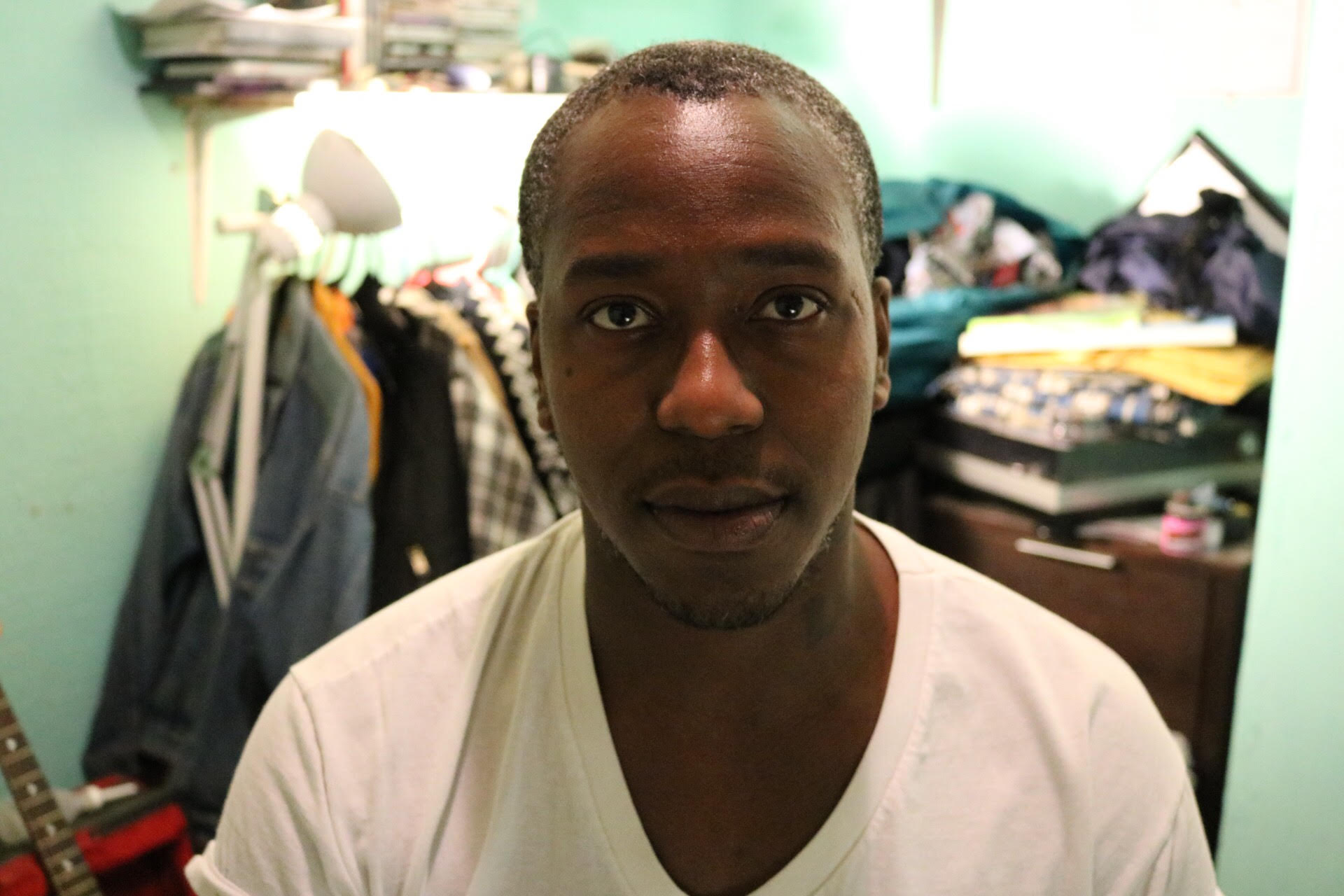Brontez Purnell, whose “explorations of blackness, queerness, maleness, and Southernness take sharp, confident turns between raunch and rhapsody,” has been publishing, performing, and curating in the San Francisco Bay Area for more than ten years. He is the author of the cult zine Fag School, frontman for the band the Younger Lovers, and the founder and choreographer of the Brontez Purnell Dance Company. He is the author of The Cruising Diaries, Johnny Would You Love Me If My Dick Were Bigger, and Since I Laid My Burden Down.
*
An excerpt from Since I Laid My Burden Down:
Before DeShawn left for Alabama and before his uncle’s death, others had gone. For instance, Arnold was dead. Dead, dead, dead as Latin. He sank with the Titanic. He flew the coop. That monkey had gone to heaven. It seemed that all the wild men around him were dying faster than he could keep track. Arnold was not the first, but he was of note.
DeShawn received the message on the morning train, on the way to classes in Oakland, and he hopped on the next train back to nowhere. There was nowhere to mourn the dead boy. Arnold had not lived in any one place for long, and had pulled so much shit that no one really loved him that much anymore. Or maybe they were waiting to love him again after he climbed out of the hole he had dug himself. Like he would appear out of thin air, a magician’s assistant with a tiara and a sash that said “Healed” or something. The dead boy died before completing that magic trick. He would be that type of memory: one to forget. Three days of crying ensued and then a phone call. Arnold’s final roommate called DeShawn and asked very sweetly if he would clean the dead boy’s room. DeShawn said yes.
This would be his last favor to Arnold. He had loved Arnold. No one knew they were fucking, and from outward appearances it probably seemed like a casual camaraderie. Fucked-up boy loves even more fucked-up boy. It was rainy, and DeShawn showed up with supplies to clean the dead boy’s room.
There were old clothes, new needles, crack pipes, Lorca poetry, and books by Bukowski. The dead boy was gentle-featured and very, very handsome. He had tried to get clean this last time, couldn’t, and then stepped in front of a car.
DeShawn’s mind shifted to his faraway youth, a certain redneck boss with permed and teased hair, smoking and sharing her thoughts on suicide. She said, “If you are brave enough to jump off a building or shoot yourself in the head then you are BRAVE. ENOUGH. TO. LIVE.”
He took it as truth because an adult had said it. And he had believed it, up until the point that he knew someone who stepped in front of a car. Up until the point he stepped in front of that car, Arnold had not been a brave person. He was fatigued, and he had made a choice. DeShawn stood over an unopened jigsaw puzzle. He wondered what Arnold felt the moment that car struck him. Had he regretted it? DeShawn believed in energy, and he believed in the other side. He lit candles, paid respect to the eight corners, and prayed—that is, hoped—that the gentle, handsome departed boy was resting in power. He asked whatever god was listening to hear him on this. He set up Arnold’s altar—a white candle and a glass of water—on the highest point in his room.
There were, of course, people around town who liked to talk. They called the handsome dead boy a junkie, and after that they called him a thief. This was true. “He was also a loved child of God,” offered Arnold’s mother. Maybe this was also true.
Away from the talkers and gossipers was Arnold and DeShawn’s criminally minded and largely harmless inner circle. It is a beautiful thing to surround oneself with people who have pulled too much sketchy shit to ever judge anyone. The type of people you could fuck over, as long as you prove it wasn’t anything personal. Everything around Arnold went missing—rent money, LPs, stamp collections. Naturally, there was some resentment. But then again, everyone saw in Arnold a brother who was in deep pain. Which made his trespasses not forgettable, but forgivable. Somewhere, Arnold had his wings.
But there was still the matter of cleaning the room. DeShawn knew he couldn’t clean it all at once. It would take days, and that was fine. There wasn’t the dead boy’s laughter to hear on the phone anymore. There wouldn’t be his physical presence in the room, by the window strumming a guitar or smoking, or standing naked, with the most beautiful erection you could imagine. The place where Arnold’s life made a rude exit was now a black hole, a deterioration in the film loop. This void meant there was time. Cleaning up a mess takes time. DeShawn knew that in order to clean up the dead boy’s room, like, to really clean it, he would have to put on the armor of detachment. Detachment was a beautiful thing. You needed detachment to be nonjudgmental. He didn’t want to say that Arnold was a selfish piece of shit for dying. He wanted to feel noble about it. He stayed neutral and nonjudgmental as a strategy to keep moving, a bargaining tool to keep the darker thoughts at bay.
from The Paris Review http://ift.tt/2IF3nrA

Comments
Post a Comment